calsfoundation@cals.org
Elton Britt (1913–1972)
aka: James Elton Baker
Elton Britt was a popular country singer of the 1940s, with a yodeling style most often compared to Jimmie Rodgers. His most popular song, “There’s a Star Spangled Banner Waving Somewhere,” was the first country performance awarded a gold record for selling more than a million copies. Britt also was a heavy influence on most subsequent yodelers in country music.
James Elton Baker was born on June 27, 1913, to James M. Baker and Martella Baker in Zack, a small community in Searcy County in the Ozarks. He was the youngest of five children and was plagued with heart trouble most of his life. Because he was not expected to live, his parents did not name him until he was a year old. He was named after his father and Elton Wilson, a local doctor who was able to keep him alive during his first year of life. Because his health was so delicate, he was pampered by his family, who called him “Cute,” a nickname used throughout his early years.
Baker acquired a love of music from his family. At the age of ten, he purchased his first guitar, a $4.95 instrument ordered through the mail from Montgomery Ward. A short time later, he heard the records of Jimmie Rodgers and was so impressed that he learned to yodel. He reportedly learned breath control while swimming underwater for several minutes at a time, which enabled him to sustain his yodel for an unusually long time.
In 1930, Baker was asked to replace his friend Hugh Ashley, another young yodeler from Searcy County who worked under the name of Hobart Walton in the Beverly Hill Billies, a popular group broadcasting almost daily over KMPC in Los Angeles, California. Although he was only scheduled to stay in Los Angeles for six weeks, this step eventually took Baker from Hollywood to New York City and other places during his long musical career. Glen Rice, an employee with the McMillan Oil Company that owned KMPC, decided that James Elton Baker did not sound hillbilly enough, so he gave him the name Elton Britt.
During his stay with the Hill Billies, Britt entered into the first of his four marriages. In February 1934, he wed Margaret Scott, a fifteen-year-old relative of his brother Vernon’s wife. Seven months later, in September 1934, Margaret was killed in an automobile accident in Cleveland, Oklahoma. In l935, Britt married Jeannie Russell, a Canadian citizen who died two days after the birth of their second child on June 9, 1937. In 1942, he wed his third wife, Penny, a long-time Britt fan; this marriage lasted until 1958, when the couple divorced. Finally, he married Janet Counts, a woman twenty-five years his junior, staying with her until 1970. Britt had children by each wife except the first, but none followed him into the world of music.
Britt’s first recordings were probably made with the Beverly Hill Billies, but it is impossible to determine on which of their several albums he appeared. His first documented recordings came in August 1933 for the Conqueror label as part of a group called the Wenatchee Mountaineers. About a year later, in June 1934, Britt made his first significant recording, “Chime Bells” (which later became a signature song), with his brother Vernon, with whom he recorded off and on for several years during the 1930s. The piece showcased his trademark yodeling. Later versions were recorded in 1939 and 1948, the latter making its way onto the Billboard charts.
Britt recorded with RCA Victor from 1937 to 1956, during which time he had several hit singles. These include “Someday” (1944), “Detour” (1946), “Candy Kisses” (1949), and “Quicksilver” (1950). His biggest hit by far was the patriotic wartime number, “There’s a Star Spangled Banner Waving Somewhere” (1942), with estimates of its sales ranging from one to four million.
Britt appeared in at least two movies. His performances in The Last Dogie (1933) and in the Charles Starrett western Laramie (1949) did nothing to advance his career. He may also have appeared in Universal’s The Prodigal Son (1949), but there is no evidence it was ever released. He received a star on the Hollywood Walk of Fame in 1960.
During the 1950s, Britt made a habit of retiring and coming out of retirement. When he retired in 1960, it was to wage an unsuccessful campaign for president of the United States on the Democratic ticket. This was generally viewed as a publicity stunt dreamed up by Aubrey Mayhew, his sometime manager. Shortly afterward, he returned to entertaining, and he had his last major hit with a seven-minute yodeling song, “The Jimmie Rodgers Blues,” in 1968.
On June 22, 1972, Britt suffered a heart attack while driving his car and died in a McConnellsburg, Pennsylvania, hospital the next day. He is buried in the Odd Fellows Cemetery in Broad Top, Pennsylvania. Later, a monument listing many of his hit songs was erected over his grave.
For additional information:
Cochran, Robert. Our Own Sweet Sounds: A Celebration of Popular Music in Arkansas. 2nd ed. Fayetteville: University of Arkansas Press, 2005.
“Elton Britt.” AllMusic.com. http://www.allmusic.com/artist/elton-britt-mn0000176830 (accessed February 17, 2023).
McNeil, W. K., and Louis Hatchett. “There’s a Star Spangled Banner Waving Somewhere: The Story Behind Its Success.” In Country Music Goes to War, edited by Charles K. Wolfe and James E. Akenson. Lexington: University Press of Kentucky, 2005.
W. K. McNeil
Ozark Cultural Resource Center
This entry, originally published in Arkansas Biography: A Collection of Notable Lives, appears in the CALS Encyclopedia of Arkansas in an altered form. Arkansas Biography is available from the University of Arkansas Press.
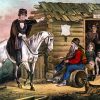 Arts, Culture, and Entertainment
Arts, Culture, and Entertainment Early Twentieth Century, 1901 through 1940
Early Twentieth Century, 1901 through 1940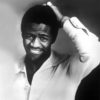 Music and Musicians
Music and Musicians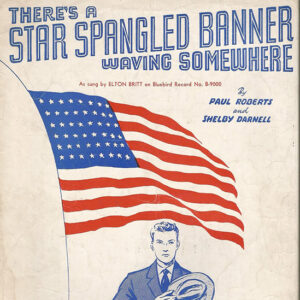 Britt Sheet Music
Britt Sheet Music 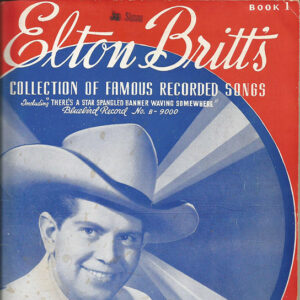 Britt Songbook
Britt Songbook 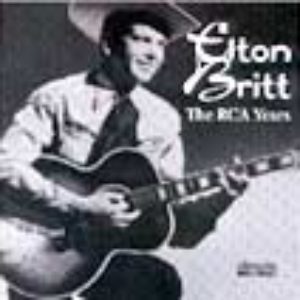 There's a Star Spangled Banner Waving Somewhere
There's a Star Spangled Banner Waving Somewhere 




I am a late discoverer of Elton Britt. For a short time, I actually had his record of When the Roses Bloom Again/Theres A Star-Spangled Banner Waving Somewhere on Bluebird record B-9000 and the record was in perfect condition until I accidentally broke it one day by leaning on it. Now I have it on my hard drive on my computer. I do have two other 78s by him: I Hung My Head and Cried/Buddy Boy-Bluebird B-9023 and Someday Youll Want Me to Want You/The Best Part of Travel where he is accompanied by the Skytoppers-RCA Victor 20-1864. I am impressed by the musical accompaniment on Britts records. I wonder who his sidemen are. The label doesnt list their names.
With RCA records, he had 11 Top 10 songs on the country charts and one on the pop charts.
Elton Britt also has a son, Todd James Bishop, who was born on February 2, 1972, to Nancy Hanks and Elton Britt. He has visited with the family in Arkansas and with Jebbie Britt in Hagerstown, MD, on occasion. He was with Elton and Nancy when Elton had his heart attack and passed. I am Todd’s wife.
I was very surprised to hear Elton Britt died nearby and is buried at Broad Top, an area I drive by frequently. In my boyhood days, he was one of my favorite singers. I still have some of his old 78 records, which I used to play on an old hand-crank Victrola. At the age of eighty, I decided to become a musician as my prime occupation. I enjoy performing the old songs at a jamboree every Saturday night. In preparation for my next performance I was looking for some of the lyrics to Elton’s songs and ran across your website. Thank you for keeping this information available. I hope that together we can keep this music alive and not let it be forgotten.